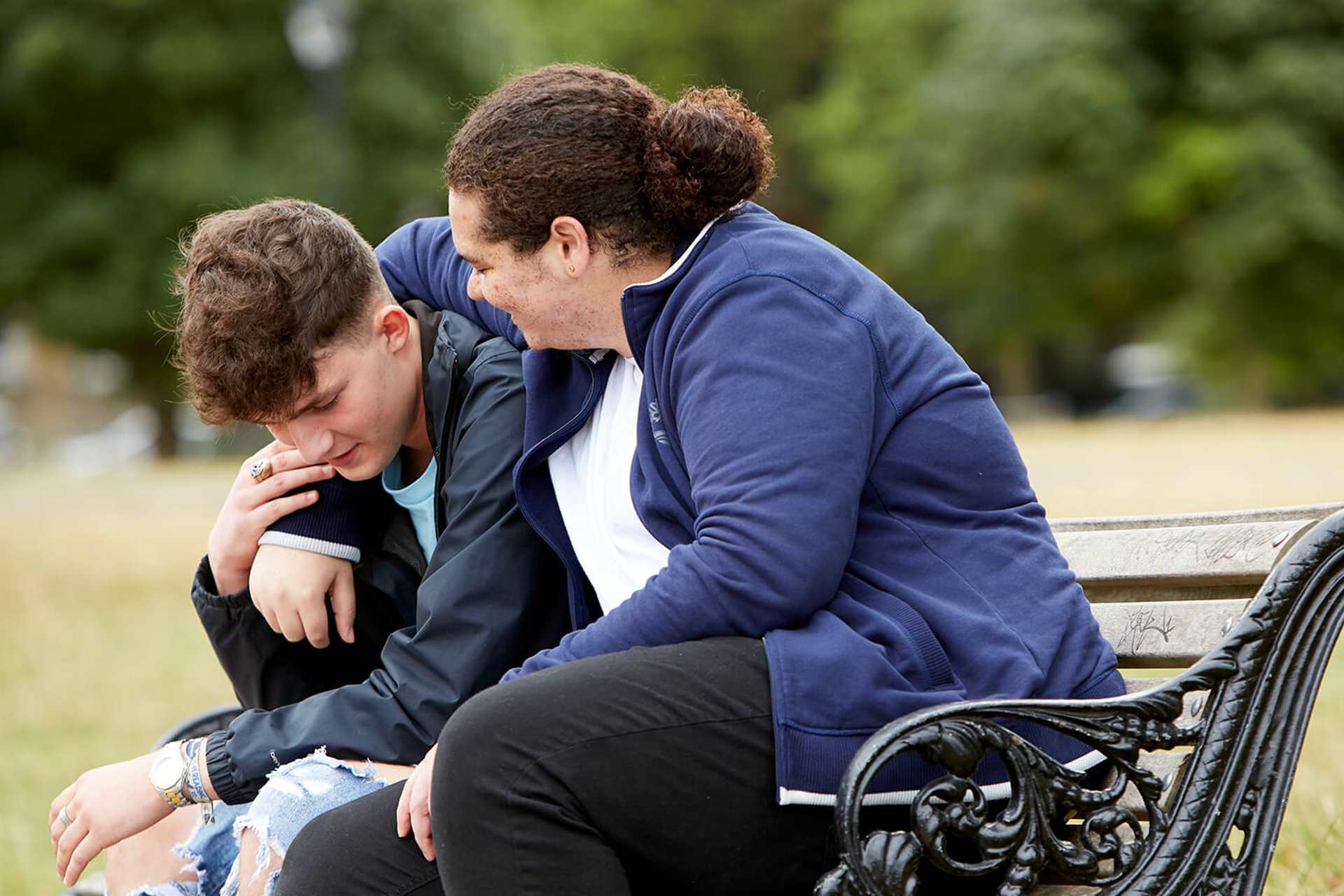Topics mentioned: anxiety, self-esteem, self-care, university
About: When Nana Yaa joined her university's spoken word society, poetry became a brilliant mental health tool for her anxiety, self-esteem and finding community.
It was my first year at university. And for some reason, I insisted on attending events which all seemed to trigger new levels of anxiety within me.
The first time I read my poetry at an open mic was at an event organised by my university’s spoken word society. It was my first year at university. And for some reason, I insisted on attending events which all seemed to trigger new levels of anxiety within me. I had gone to the open mic alone, which was in itself very brave of me. But I didn’t quite stop there.
When the opportunity presented itself and calls were made for people to sign up for a last-minute performance slot, I put myself forward. Did I choose to share a simple, perhaps safe, poem? Absolutely not! Somehow, in that moment, I thought it would be a brilliant idea to share a poem I had written in French, as well as its English translation.
I’m not French. I mean, I had studied French at A-level, but I was no linguistic aficionado. I did like the way the French language sounded, and since I was seemingly up for trying anything, why not share a French poem to an audience of super talented spoken word artists? After all, what could possibly go wrong?
I don’t remember having experienced anything like that before, at least not for my poetry.
On that night, the answer to that question would be: nothing. Nothing went wrong. In fact, everything went right. My last words were met with cheers and a booming round of applause. I don’t remember having experienced anything like that before, at least not for my poetry, especially poetry that was so personal and intimate. Yet there I was sharing my words, a piece of myself, and being received with such warmth. Looking back, I think that was the day I fell in love with the open mic community.
But the adrenaline rush, and the temporary ego boost at open mics are but a fraction of what poetry has to offer. Poetry is a brilliant mental health tool and here’s why you might want to try it.
As someone who finds a sense of safety in silence, poetry empowered me to take ownership of my voice, my words, and my story.
Writing poetry helps you release and process difficult or complex emotions
During the pandemic, I found myself experiencing symptoms of what I would later learn was anxiety. But through writing, I was able to meaningfully observe and label what was going on in my mind, and in my body. Poetry allowed me to speak clearly and honestly about what I was feeling. I was also able to release thoughts and emotions I had been unknowingly suppressing.
Writing (and sharing) poetry can help you build self-confidence and self-worth
Due to traumatic events in my childhood, for a long time, I had deeply struggled with low self-esteem and self-worth. Through writing and sharing poetry, I was able to untangle the truth from the harmful narratives I had unknowingly internalised.
One of the remarkable things about poetry is that it enables the voice of the writer to take centre stage. As someone who finds a sense of safety in silence, poetry empowered me to take ownership of my voice, my words, and my story. And in doing so, I was able to encourage others to do the same.
During my lows, I have found that reading poetry helps ground me, even when I lack the will to leave my bed.
Taking part in poetry workshops can help you find connection with others
Poetry workshops are a space where you can write alongside others, with the guidance and support of a workshop facilitator. Due to their intimate nature, they are an ideal environment for sharing your writing and your thoughts, and people who join the workshops tend to value and embrace vulnerability and honesty too. That’s why poetry workshops are great for developing deep and genuine connections with others. I am lucky to have met some of my closest friends at poetry workshops.
Reading poetry can ground you and remind you of the positive things in life
During my lows, I have found that reading poetry helps ground me, even when I lack the will to leave my bed. A lot of poetry asks the reader to observe their body, their environment or their relationships in a positive way. It encourages you to reflect on life from a place of gratitude. I especially love poetry which feels like gazing at the stars or going for a stroll in the woods, and I think the poets Wendell Berry and Mary Oliver capture the essence of these moments in their work.
Poetry also has the power to help you feel seen and understood.
But poetry also has the power to help you feel seen and understood. The words of poets like Charles Bukowski echo the utter devastation I have felt in difficult times. And at various points I have found such raw and honest expressions of pain really comforting.
More information and advice
We have tips and advice to help you find the support you need. Take a look at our guides.
Where to get help
However you're feeling, there are people who can help you if you are struggling. Here are some services that can support you.
-
CALM (Campaign Against Living Miserably)
Provides support to anyone aged 16+ who is feeling down and needs to talk or find information.
Free webchat service available.
Read information about the helpline and how it works.
- Opening times:
- 5pm - midnight, 365 days a year
-
Childline
If you’re under 19 you can confidentially call, chat online or email about any problem big or small.
Sign up for a free Childline locker (real name or email address not needed) to use their free 1-2-1 counsellor chat and email support service.
Can provide a BSL interpreter if you are deaf or hearing-impaired.
Hosts online message boards where you can share your experiences, have fun and get support from other young people in similar situations.
- Opening times:
- 24/7






